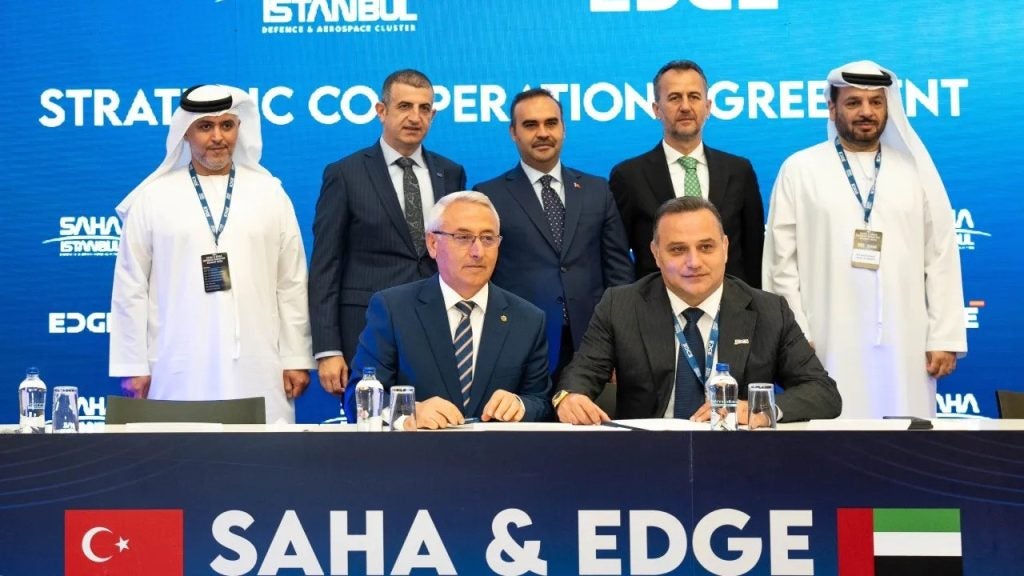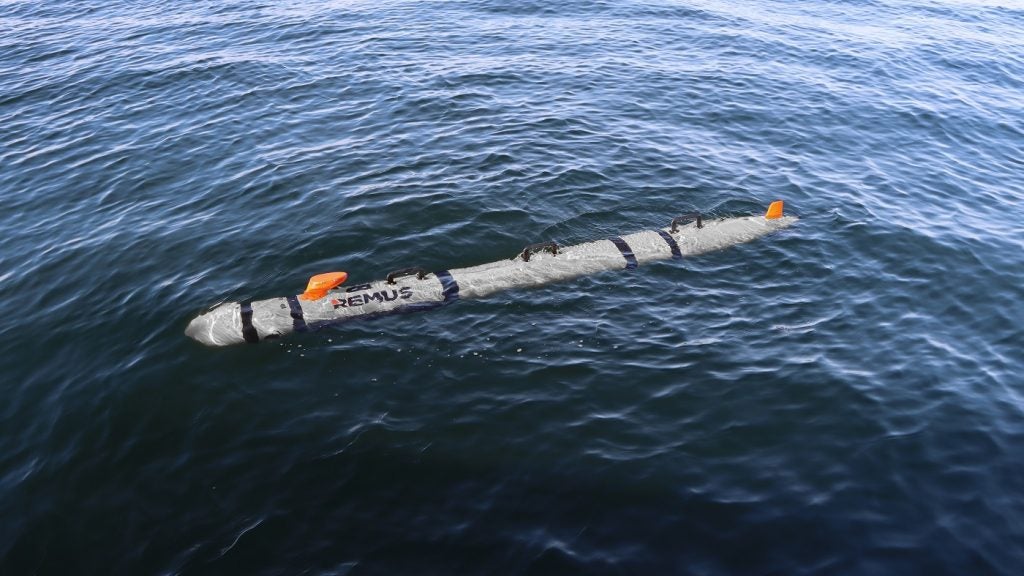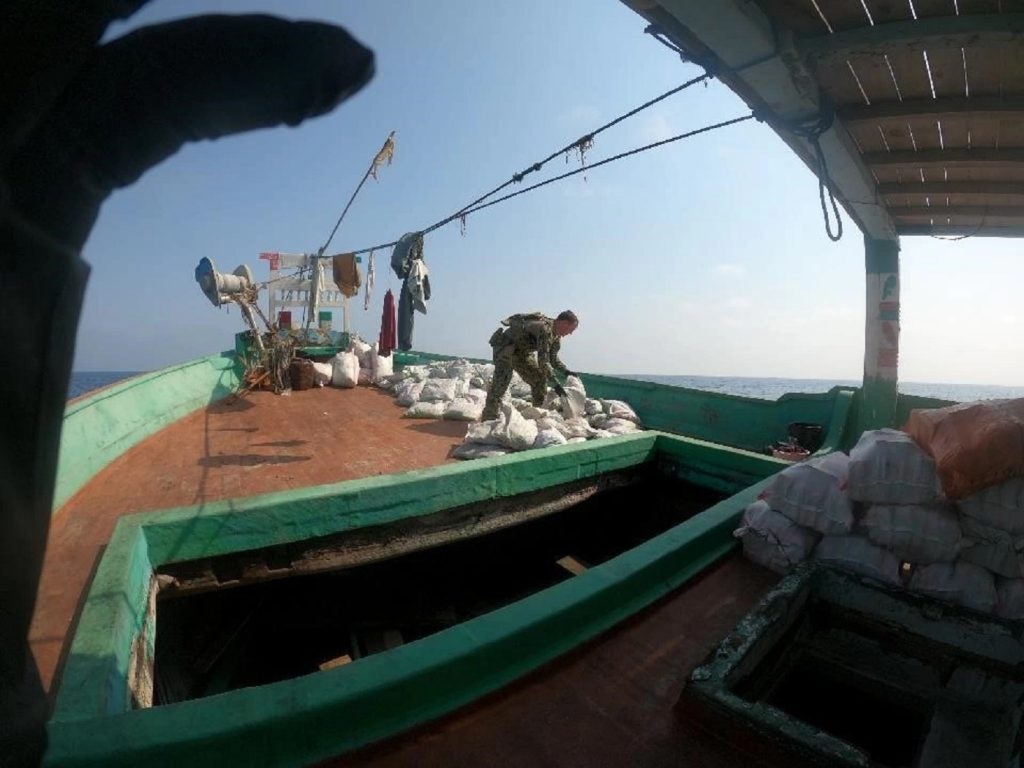The United Arab Emirates’ (UAE) Edge Group military contractor has announced a “strategic cooperation agreement” with defence and aerospace association Saha Istanbul in a move expected to strengthen military ties between Turkey and the UAE.
Chairman Faisal Al Bannai said the deal will allow Edge to “tap into Turkey’s rich ecosystem and robust supply chain”, with Saha representing more than 1,000 Turkish defence companies.
The deal was announced yesterday (11 October) during an exclusive industry event for Edge hosted by Saha at the Ankara Congress Centre.
Edge expansion
This latest agreement comes amid a flurry of activity by Edge, a government-owned company inaugurated in 2019 by Abu Dhabi crown prince and deputy commander of the UAE Armed Forces Mohamed bin Zayed Al Nahya.
Last month, Edge branched into the Latin American market by acquiring a 50% stake in SIATT, a Brazilian smart weapons specialist. Edge also unveiled deals with the Brazilian Navy, Marine Corps and Air Force as part of its long-term investment strategy into the Americas.
Edge has also made steps to consolidate its dominance in the UAE and wider Middle East. In the space of one week in July, Edge acquired UAE-based OryxLabs and Etimad, building on an 80% stake bought in MarsRobotics, an autonomous engineering company in Jordan.
Most significantly, Edge was awarded a $1.2bn landmark contract to supply Desert Sting P5 systems at a major UAE industry expo in February.
With an annual revenue of $5bn last year, Edge employs more than 12,000 individuals within its 25 subsidiary companies, according to GlobalData figures. Those subsidiaries include Abu Dhabi Ship Building, ADASI, Caracal, Emirates Advanced Research and Technology Holding, Jaheziya, Knowledge Point, Lahab and Nimr.
Edge has also announced it will open an office in the UAE named ‘Malath’, or a safe haven in Arabic, solely dedicated to business with Saha companies.
Our signals coverage is powered by GlobalData’s Thematic Engine, which tags millions of data items across six alternative datasets — patents, jobs, deals, company filings, social media mentions and news — to themes, sectors and companies. These signals enhance our predictive capabilities, helping us to identify the most disruptive threats across each of the sectors we cover and the companies best placed to succeed.











